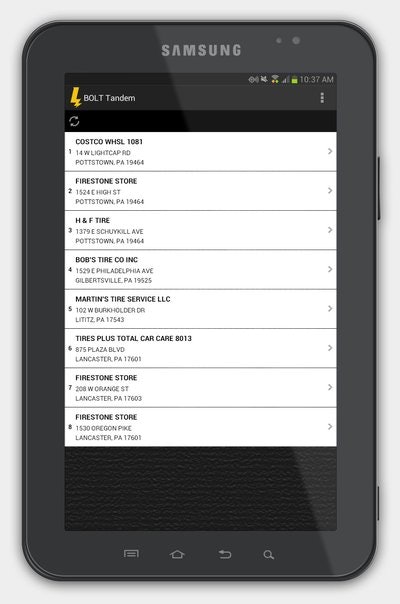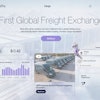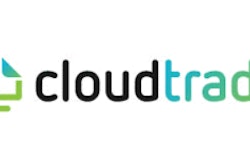
In 2015, Infor’s acquisition of GT Nexus for $675 million signaled the rising importance of cloud technology in supply chain management. In acquiring the GT Nexus cloud chain platform, the enterprise software provider realized that the collaborative nature of contract manufacturing calls for faster coordination of design, manufacturing and shipping that cloud technology can uniquely manage.
Enterprise software’s migration to the cloud foreshadows a supply chain driven by robust scalability, reduced costs, improved versatility and faster access to time critical data, all of which enhance a company’s competitiveness.
The cloud, with its affordability and ease of adoption, makes it easier for companies to manufacture, distribute and launch products faster, says Jason Tham, CEO of Nulogy, a provider of cloud-based solutions for contract manufacturers, packagers, 3PLs and brands. Tham says cloud technology is supporting the rising demand for “mass customization,” whereby manufacturers want to cater to local tastes. “Producing closer to the point of consumption is something a brand wants to do, not only to reduce costs, but to ensure speed-to-market despite the complex supply chain processes involved in mass customization,” he says. “Cloud is certainly an enabler for this.”
Consumer packaged goods (CPG) companies are outsourcing contract packaging in their distribution centers (DCs), requiring contract packagers to deploy assets and software in their DCs. Cloud technology has been a critical enabler, says Johan Pot, senior vice president of sales and marketing at Crescent, a contract packager. “The ability to bring these sites up quickly, seamlessly, on the same platform, and not having to invest in hardware, additional servers and equipment, makes a huge difference,” says the Nulogy customer.
Boost to MES Software
Cloud technology has also lowered deployment costs for manufacturing execution system (MES) software, giving smaller companies access to MES for the first time, says Srivats Ramaswami, chief technology officer at MES provider 42Q. Deployment can be achieved in six weeks rather than several months. At the click of a button, a manufacturer of a highly regulated product can show an auditor either paper or electronic quality records, genealogy and traceability of products at any point in the supply chain.
“We have complete, multilevel, supply chain channel traceability,” says Gelston Howell, 42Q’s senior vice president of marketing. “We have traceability that includes all operators who touched any part of it, even the packaging.” Some current 42Q cloud-based MES deployments also include machine-to-machine communication in production for real-time process control and compliance.
How Long will it Take?
What’s uncertain, however, is how long this transition to cloud technology will take, given the natural resistance to change and lingering questions about the technology’s reliability, security and integration with legacy systems. The cloud changes the business model in that the user does not own the hardware.
While the cloud cites faster integration of software silos as one of its benefits, the integration can present challenges for companies that rely on more traditional on-premise systems. Cloud service providers find they need to educate potential customers about the technology.
Legacy users have already invested significantly in on-premise systems. Many view the cloud as unsecure and prone to hacking. Some are concerned about possible problems with partner integration. And because subscription applications are accessed via the Internet, some are concerned about insufficient response times for high data volume applications such as warehouse management systems (WMS).
Cloud Makes Headway
Cloud technology has taken hold in enterprise software such as sales, customer relations management, human resources and ERP, observes Glenn Jones, chief technology officer at Steelwedge, a supply chain planning software provider. Jones maintains it does not have anywhere near the same traction in supply chain planning where it holds much potential.
The benefits of the cloud are important to the supply chain since companies use their supply chains to differentiate themselves, Jones notes. “Every supply chain is unique, and hence the solutions are customized, which makes it harder to maintain, and so the good cloud companies are able to allow their customers to have customizations, yet also allow upgrades,” he says.
One area where the cloud is making noticeable headway is in transportation management systems (TMS).
Transervice, a provider of transportation solutions, switched from an on-premise server solution to a cloud-based solution for the efficiency of deployment and the cloud provider’s willingness to customize interfaces. Transervice sends and receives delivery information automatically with its customers. “It’s a lot easier to assimilate with them [customers] on a cloud-based environment than it is to develop a custom integration deal with a partner who is server based, in terms of both flexibility and in making dynamic changes,” says Joe Evangelist, executive vice president at Transervice Logistics Inc..
“When I can get real-time actionable data captured, it maximizes my ability for on-time delivery,” he says. “It then empowers my dispatch team to make these critical and efficient decisions. I have drivers that are under hours-of-service constraints, I’ve got equipment that must meet strict maintenance requirements. I’m no longer constrained by the limits of the data crunching on a normal server-based system.”
As the reliability and security of the Internet has improved in both security and speed, the cloud has become a better option, says Jerry Robertson, BOLT System chief technology officer and previously a vice president at Oracle. BOLT’s cloud-based fleet management system was launched in 2005.
BOLT can scale a customer from 50 trucks to 1,000 trucks quickly with no downtime and only a monthly subscription fee for each truck in service. A server based system designed for 50 trucks will not allow a user to scale up quickly. At the same time, a server-based system built for a large fleet will require a significant investment without offering any flexibility if the system doesn’t meet expectations.
ERP Pushes Cloud into Supply Chains
As ERP providers embrace the cloud, they are pushing cloud technology further into supply chains, Robertson notes. This is important as transportation needs are becoming more complex due to omnichannel expansion fueled by e-commerce.
TMW Systems, a TMS software provider, recognized the need to move data among systems seamlessly. Hence, the company has introduced SaaS (software as a service) versions of its business intelligence solutions. The trend has moved from generating mass amounts of data to being able to actually use the data, says David McKinney, principal of business intelligence and optimization at TMW Systems.
Carrier customers provide lane and rate information that allows TMW Systems to create useful operating metrics. “Bringing all this information into the cloud affords us the opportunity to extend our understanding of the market in more real time,” he says. This delivers market dynamics to the customer. Market rate information will be available in the near term for cloud customers, with more market information coming.
“We’re transforming from a world where only a select handful of people have sophisticated intelligent technology. Now everybody has it,” says Abtin Hamidi, co-founder and executive vice president of Cargo Chief Inc., a freight broker that provides a cloud-based platform for matching shippers and carriers.
Hamidi thinks shippers will no longer focus on long-term contracts since capacity is becoming accessible more quickly, thanks to the cloud. Long-term contracts provide stable pricing, but it is expensive. “Everyone is moving more to a transactional [spot market] environment,” he says.
Transportation gets Collaborative
“Transportation is the most collaborative space in supply chain,” observes David Landau, executive vice president of Cloud Logistics. A centralized carrier portal hosted by Amazon Web Services simplifies a carrier’s interaction with shippers. An on-premise TMS, on the other hand, requires each shipper to maintain their own connectivity with each carrier.
The cloud has also allowed social media type messaging to be embedded in the TMS data stream, allowing personal messages to occur within the stream. “It’s piggybacking off consumer technology,” Landau says.
The recent verified gross mass (VGM) requirement for ocean containers under the International Maritime Organization’s Safety of Life at Sea Convention (SOLAS) will encourage ocean shippers to use cloud-based software. SOLAS VGM requires that a container’s gross weight be verified before being loading onto a ship.
Several cloud-based systems allow shippers to communicate with carriers without requiring a separate connection to each carrier.
Bryn Heimbeck, co-founder and president of Trade Tech Inc., a cloud-based logistics software provider, says ocean shippers will find cloud technology bringing benefits beyond complying with the new VGM requirement. “With a cloud-based portal, you’re able to gather shipping the data in one place and have the ability to send the data to whoever is required to have it, no matter where they are in the world,” he says.
“It’s particularly well suited for addressing the requirements of global transportation,” Heimbeck says of cloud technology.
Rubicon Global Holdings LLC uses cloud-based technology to connect its network of independent waste haulers, allowing each provider the scale needed to compete with national providers. The desktop and app-based system is akin to an “Uber” for waste haulers. Rubicon services several Fortune 500 companies, says Nate Morris, co-founder and CEO of Rubicon Global, a cloud-based service for recycling waste.
“The cloud has allowed us to scale incredibly fast,” Morris says. “We’re able to capture and collect data to tell a story and create one source of truth. The technology allows the haulers to run their business better and gives our customers real-time information from the field.”
Rubicon’s data are able to determine the right amount of service a customer needs. Morris says over servicing is rampant in the waste hauling business.



















